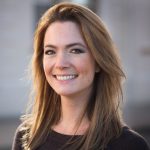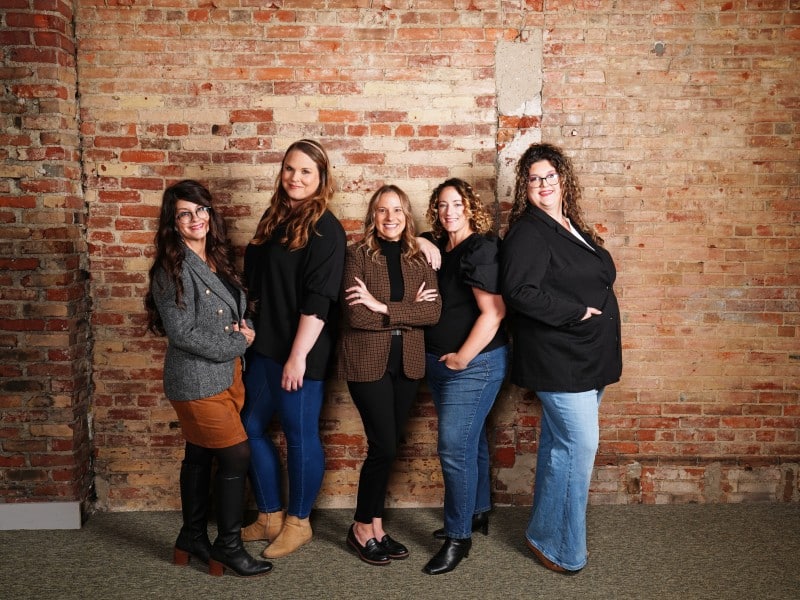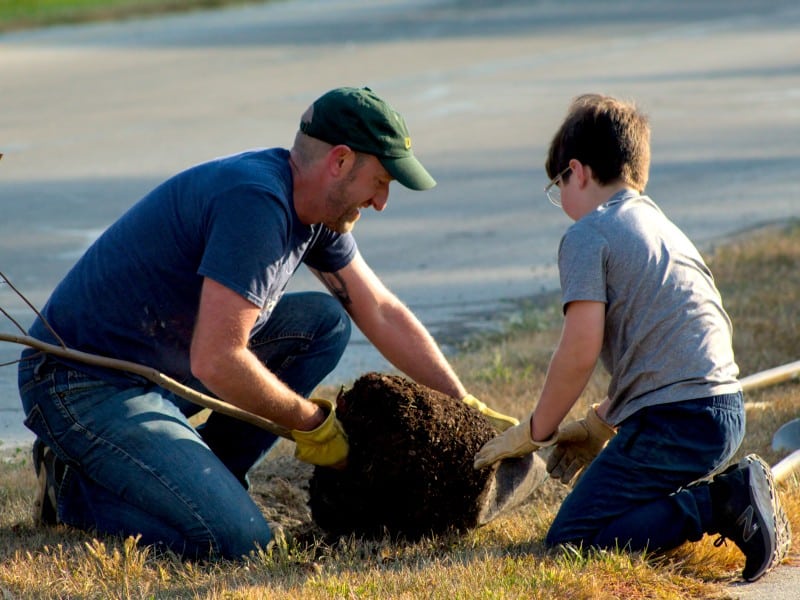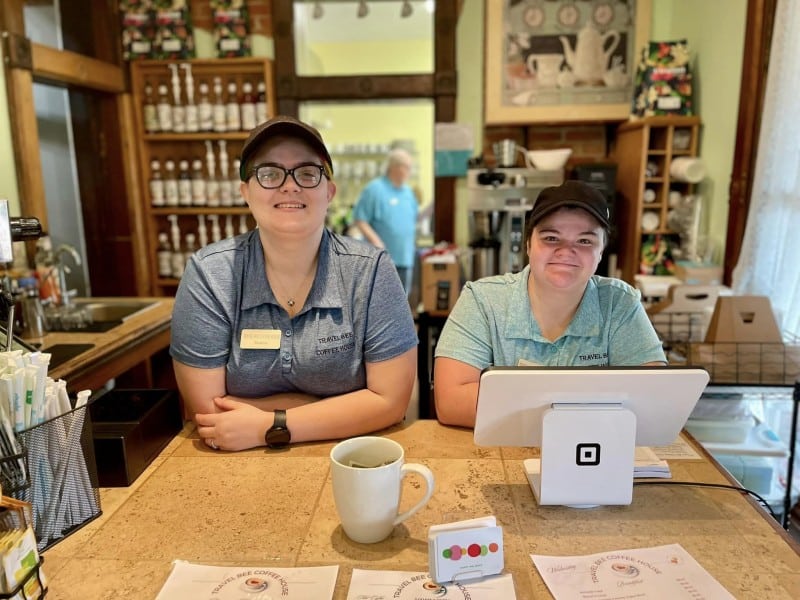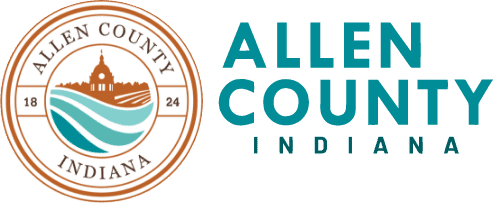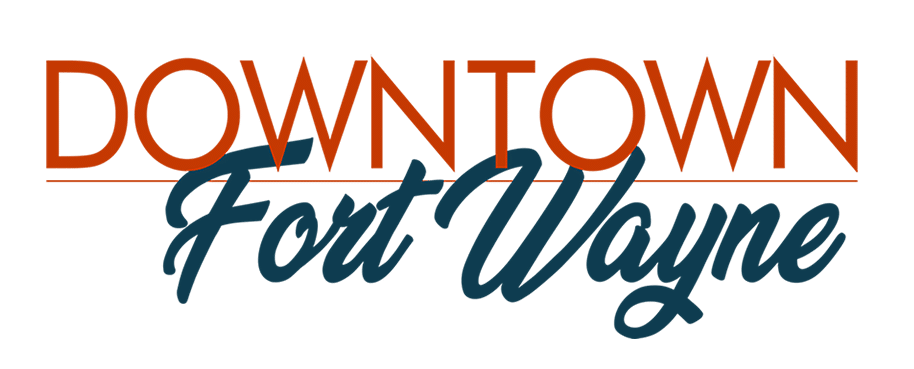Telling better stories in northeast Indiana
How neighborhoods, businesses, and organizations are making our community a better place.
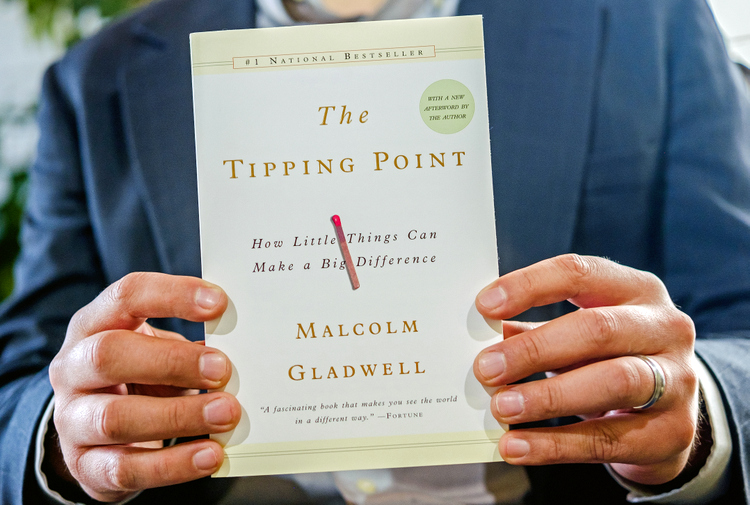
The first time Pastor Javier Mondragon read about the broken windows theory was in 2006, in a book by Malcolm Gladwell.
The first time he experienced it was as a gang member at age 12, growing up in Cuernavaca, Morelos, Mexico, just south of Mexico City, in the early 90s.
“It was the most neglected area in the city, just like southeast Fort Wayne is here,” Mondragon recalls.
Looking back, he remembers walking outside his family home, seeing everything falling apart in his neighborhood with broken windows and blighted houses, and he internalized that feeling.
“I remember thinking: This is who I am. I have no future. I am hopeless.”
To some extent, it’s something we all do—looking at our surroundings, and seeing them as part of who we are, what we’re worth, and what’s expected of us. The places we live shape us, and we shape them in return.
“I saw the broken windows, and it made me feel like, ‘Yeah, that’s me.’ So I broke more windows because nobody cared,” Mondragon remembers.
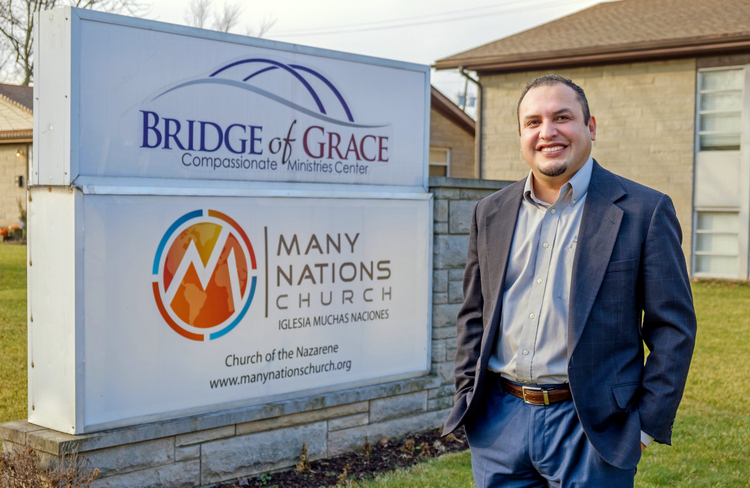
Today, 25 years later, he’s pastor of Many Nations Church and founder of the nonprofit Bridge of Grace Compassionate Ministries Center on Fort Wayne’s southeast side, living and working in the Mount Vernon Park neighborhood only 10 minutes from downtown.
Here, 57.4 percent of residents earn $25,000 or less per year, 89 percent are people of color, and 46 percent are under age 25. So as a boy who grew up poor in Mexico, Mondragon sees himself in his surroundings again, and this time, he’s working to be part of the change—fixing broken windows, rebuilding broken houses, restoring broken lives.
“If you fix something, that’s a signal to people that you care,” Mondragon says.
When he moved into the neighborhood in 2008, he started cleaning up the area with his church’s Adopt a Block program, collecting trash along the streets, mowing lawns, and mulching. Then in 2011, Mondragon established Bridge of Grace as a nonprofit organization, so the church could take on bigger projects.
Working with the City of Fort Wayne and Allen County, as well as other local churches and sponsors, Bridge of Grace bought and restored five blighted houses in Mount Vernon Park, not including Mondragon’s own. Now, they’re in the process of selling those houses back to community members, and their work is far from finished.
They own five more houses they are waiting for the time and resources to fix up, but the challenges of poverty, segregation, and violence continue.
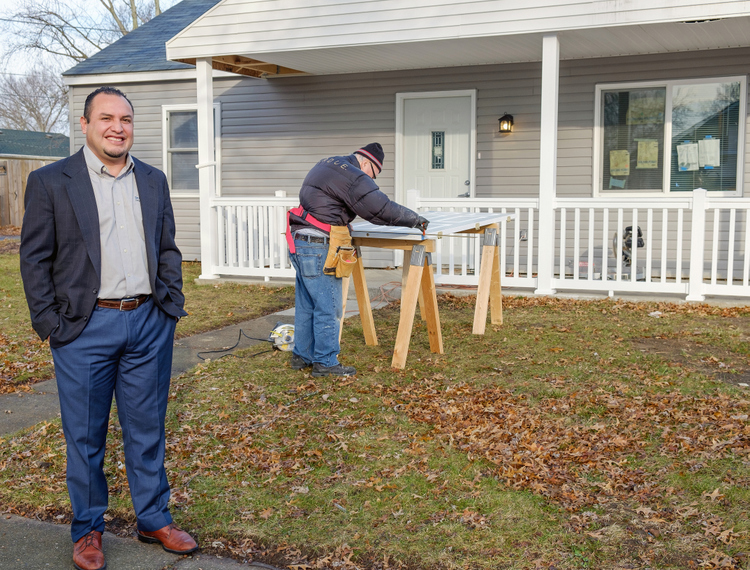
In 2013, a shooting broke out two doors down from Mondragon’s house. But while crime—or the perceived danger of it—might have scared some away, it gave him more reason to press in.
A fan of Gladwell, he talks excitedly about another one of his books, David and Goliath, a story about underdogs, like the Bible story where the boy took down a giant with only a slingshot.
Mondragon thinks it holds a strong comparison to Bridge of Grace’s work in southeast Fort Wayne.
If you want, you can see it as the story of a small church with few resources up against a giant list of challenges.
“But if you look at the weaknesses and the strengths,” Mondragon says. “And if you convert those weaknesses to opportunities, the challenges become an opportunity,”
What if an entire city—an entire region—thought like that? What if people saw challenges as opportunities, and decided to tell a better story?
Going for it, against all odds
When you first talk to Parker Beauchamp, you might assume he’s one of those young adventure-seekers in California, running a company out of Silicon Valley.
His voice has that laid-back, cool tone of a surfer on the West Coast, and he talks casually about alpine climbing and ice climbing, as things he likes to do when he’s off the clock. He even climbs buildings.
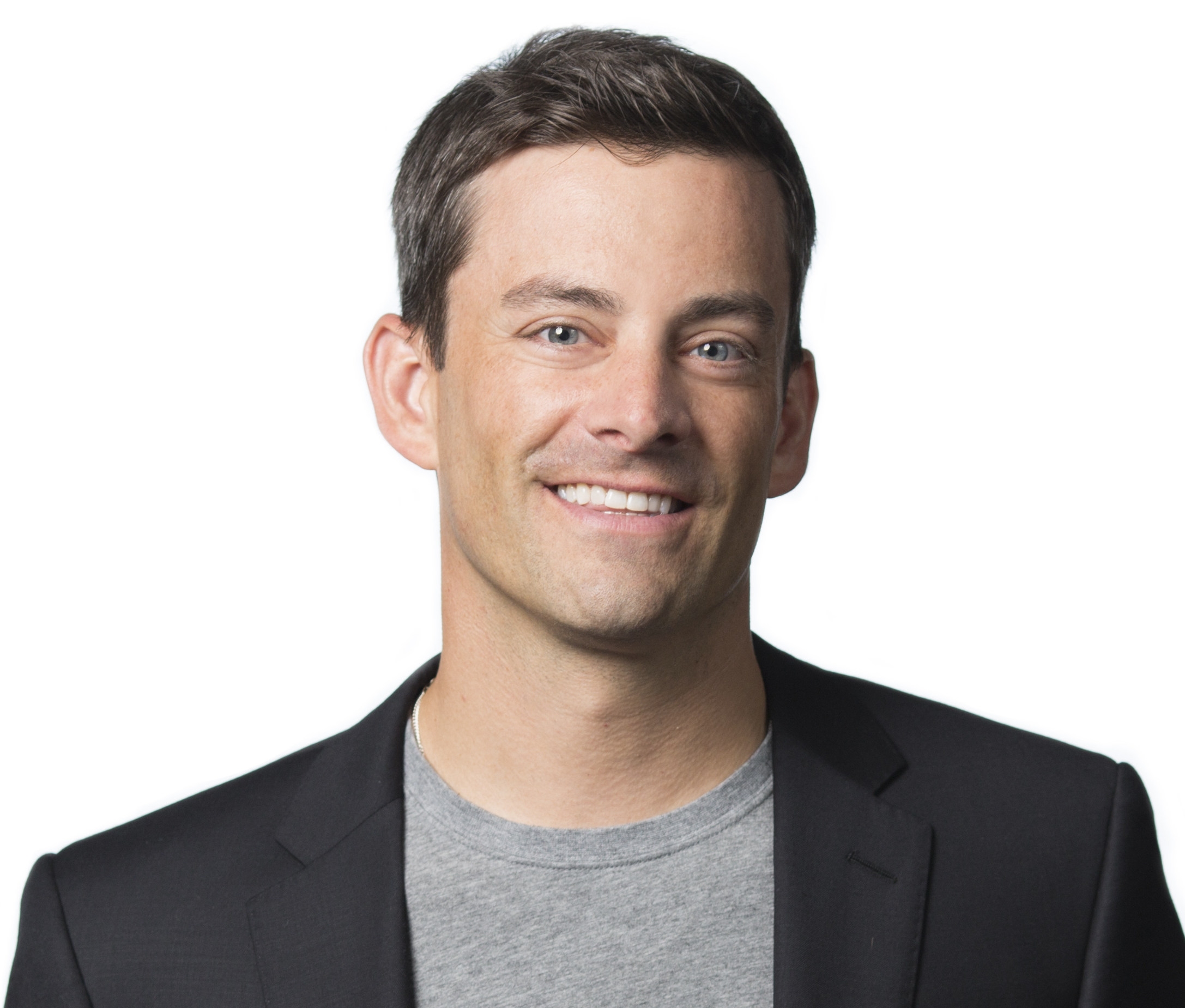
As CEO of an insurance company called INGUARD, he’s earned the business of some of the richest people in the world. So it’s no surprise that he recently opened a 24/7/365 Innovate @ INGUARD center where entrepreneurs of all types meet up to work on their projects and collaborate.
But what you might find surprising is that Beauchamp is living and working in his hometown Wabash, Indiana, which he calls “the little city that could.”
“INGUARD should be in San Francisco or New York. No question,” Beauchamp says. “But that wouldn’t be as good of a story. We couldn’t create as big of an impact there as we do here.”
A fifth-generation insurance professional, Beauchamp remembers riding escalators up and down Lloyd’s of London as a boy on business trips with his parents, literally dreaming of being an insurance broker someday. But even though his family has owned an insurance company since 1870, it wasn’t handed to him.

As a hungry Purdue University graduate, he cold called the campus president to give him a grad school recommendation so he could earn his MBA and get to work faster. Then, with a graduate degree at age 24, he moved home and drove his grandmother’s Lincoln Town Car around the region to hustle up clients.
But Beauchamp quickly discovered the challenges of dreaming big in a small town. People from other regional cities were sometimes slow to bite, slow to trust a kid from Wabash with their business. So he flew to the coasts, and won the business of the rich and famous instead.
“Within a few years, I (was insuring) an Oscar winner, the richest man, and the richest woman in the world, separately,” Beauchamp says. “And it just kind of grew.”
His hard work and ambition drove him to buyout the company from the rest of his family’s stakeholders in 2012, so he became the sole owner. And if you ask him today, he’ll tell you that he loves his hometown for the same reasons he loves his business—because he’s had an active role in shaping it.
“I think people connect with that identity of being against all odds and totally going for it,” Beauchamp says. “Wabash gives people that.”
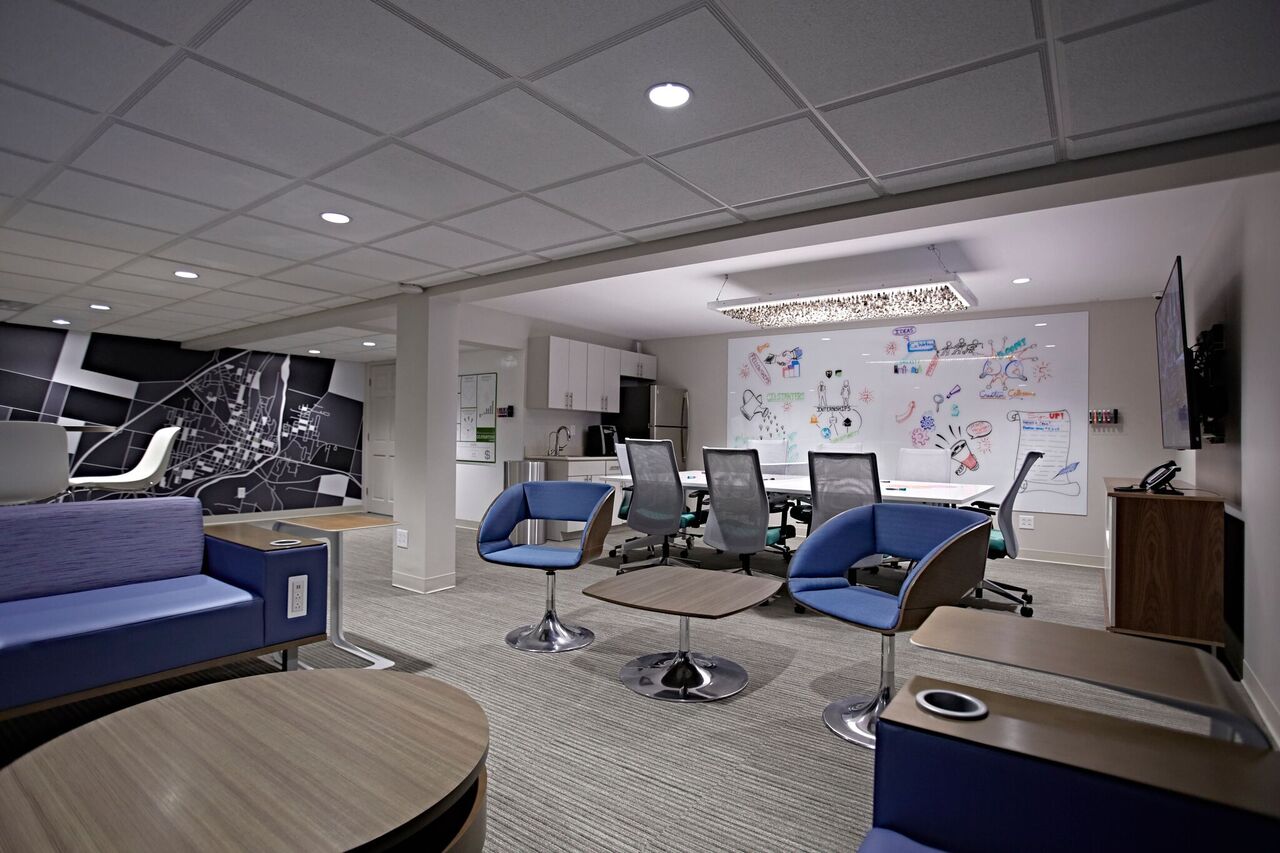
It’s an identity Beauchamp thinks could extend to the entire northeast Indiana region. And while Wabash is his top priority, he’s starting to see that if he wants his hometown to be successful, he has to invest in the success of the region as a whole, even though the region doesn’t always think of itself that way. There are hierarchies and stereotypes people from different places have about each other—the same issues he confronted trying to get regional clients.
So how can a large, multifaceted region be more inclusive of everyone? What does inclusivity even mean?
Sharing the same path
Growing up, Patti Hays remembers hearing stories about her grandmother being left-handed in an extremely conservative school where left-handedness was considered a mark of the devil.
“They tied her left hand behind her back so that she had to write with her right hand,” Hays recalls. “People want to say, ‘This is what’s normal,’ and now you and I go, ‘Left handed? Right handed? It doesn’t matter.’”
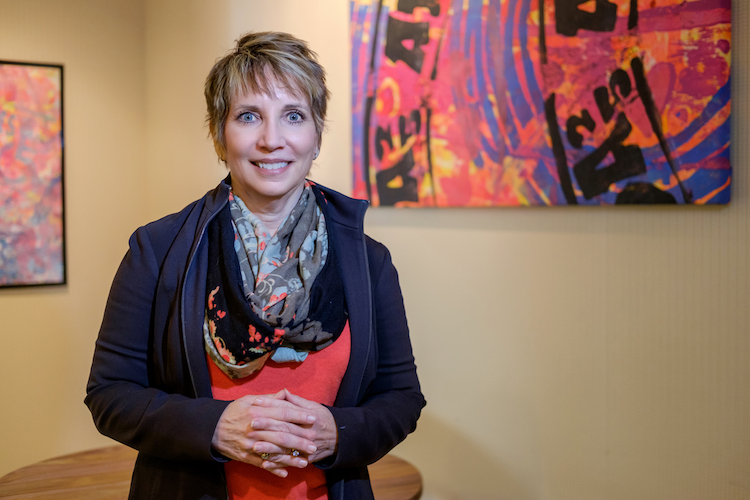
In Hays’s lifetime, she’s seen progress on diversity and inclusivity, ranging from the words people use in everyday vernacular to the shows they watch on TV. “Mailman” became “mail carrier.” “Stewardess” became “flight attendant.” “The Cosby Show” changed the way black families were portrayed in pop culture.
But if you ask someone what diversity and inclusion mean, it usually stops at that. Strides made for gender, race, maybe sexual orientation. Rarely do people consider that inclusion also involves people with disabilities.
Actually, Hays doesn’t even like the word “disabilities.” It’s misleading and stereotyped as people who aren’t capable of things, when in fact, every individual operates on their own set of abilities, according to personal strengths and weaknesses.
“It’s varying abilities, and we all have them,” Hays says. “If anybody saw me play basketball, they would probably say I was disabled because I don’t have that ability.”
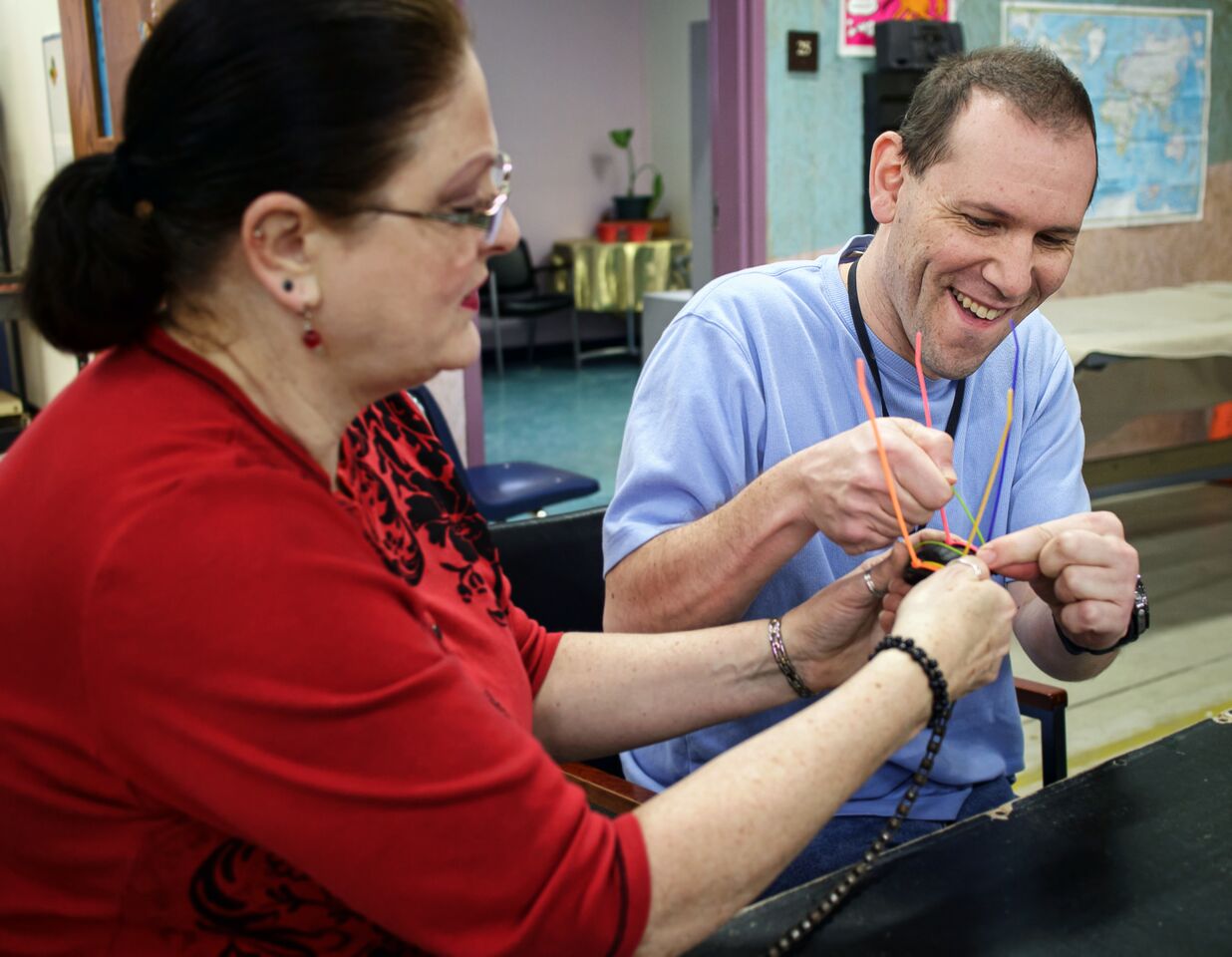
So as CEO of the AWS Foundation, she has made it her job to remind people in northeast Indiana that varying abilities are another attribute of an inclusive community—one that is often overlooked or misunderstood.
The AWS Foundation awards grants for programs and services that help people of all abilities participate in northeast Indiana and be treated as equals in our society. While she finds that most people want to be inclusive, an issue she often encounters is having to explain what inclusivity actually means.
It’s more than meeting the minimum requirements of government standards like ADA; it’s making sure everyone gets to use the same path with equal access to resources and opportunities.
Hays calls it “everything, everywhere, always.”
That’s the ideal. The problem is, people exist in the silos of their experiences, blind to their own blind spots, and if they don’t have a disability or know someone who does, then they might not realize what challenges—what opportunities—even exist.
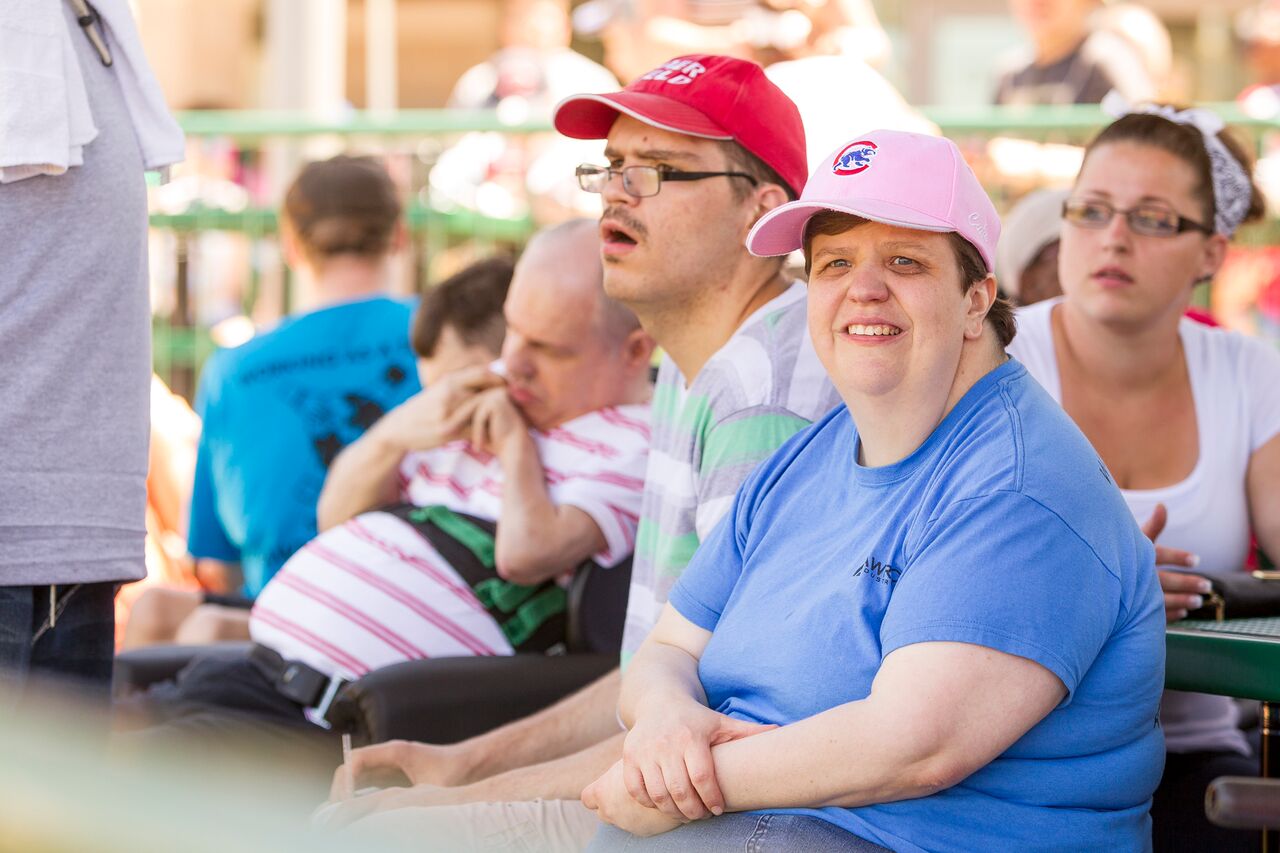
That’s what Input Fort Wayne is all about.
In many corners of northeast Indiana, in neighborhoods, businesses, and organizations, people are asking questions and working to make their communities better places. They’re telling interesting stories, and living powerful lives.
When we get a chance to hear what they’re doing, we see how the narrative of our region fits together and creates the momentum that drives us forward.
Northeast Indiana has a long history of innovation and entrepreneurship. Of people who work with their hands and won’t take no for an answer. Of people who rise against all odds and fell the giants.
Input Fort Wayne is where their stories come to life and remind us why we’re here in the first place.
Because the future is in the making.
Because we can make a difference.
Because we have input.

